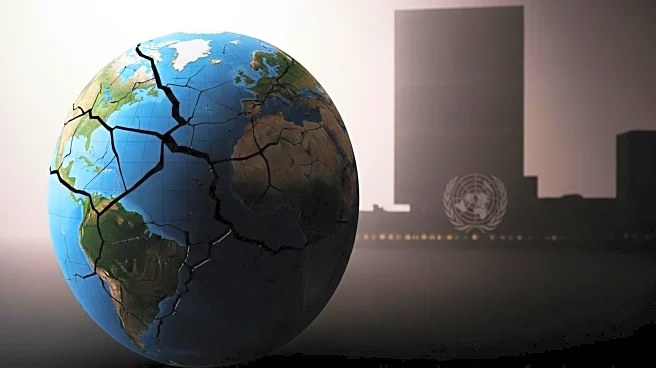What's Happening?
Following an Israeli airstrike that killed Houthi Prime Minister Ahmed al-Rahawi and several ministers, Houthi forces have raided United Nations facilities in Sanaa and Hodeidah, arresting at least 11 staff members. The UN has condemned the detentions and the raids on its premises. Houthi Chief of Staff Abdul Karim al-Ghamari, who was reportedly wounded in the strikes, has threatened Israel with harsh retaliation. The Houthis have also claimed responsibility for a missile attack on an Israeli-owned vessel in the Red Sea, further escalating tensions in the region.
Why It's Important?
The raids on UN facilities and the detention of staff members highlight the increasing risks faced by international organizations operating in conflict zones. The Houthis' actions could hinder humanitarian efforts in Yemen and strain relations with the international community. The missile attack on an Israeli-owned vessel underscores the potential for increased maritime threats, which could disrupt global shipping routes and impact international trade. The situation reflects the broader geopolitical tensions in the Middle East, involving multiple state and non-state actors.
What's Next?
The international community, including the United Nations, may need to engage in diplomatic efforts to secure the release of detained staff members and ensure the safety of its personnel. The potential for further retaliatory actions by the Houthis could prompt increased security measures in the Red Sea region. Diplomatic interventions may be necessary to de-escalate tensions and address the broader implications of the conflict on regional stability and humanitarian efforts.









